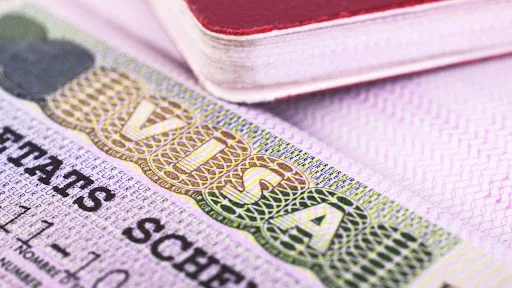Brussels, June 18, 2025 – The European Union has introduced a groundbreaking reform to its visa policies that could potentially strip Israel of its visa-free access to the Schengen area, a move driven by escalating concerns over alleged violations of the UN Charter and international humanitarian law. The proposed rules, reported by Euronews, aim to tighten the EU’s visa suspension mechanisms, signaling a shift in the bloc’s approach to countries accused of breaching international norms, with Israel emerging as a primary target due to its actions in Gaza and recent military operations against Iran. While the reforms await final approval from EU member states and the European Parliament, they have already sparked heated debate, reflecting deep divisions within Europe over how to address the volatile Middle East situation.
The proposed changes amend the EU’s existing visa suspension framework, which currently allows 61 countries—including Israel, the UK, Japan, and Australia—to enjoy visa-free travel to the Schengen area for up to 90 days. Under the new rules, the threshold for suspending visa-free access has been lowered, and new criteria have been introduced, including violations of the UN Charter, severe breaches of human rights, non-compliance with international court rulings, and breaches of international humanitarian law. According to sources in the European Parliament cited by Euronews, Israel is among the countries most at risk of facing restrictions, primarily due to allegations of war crimes and crimes against humanity in its ongoing military operations in Gaza, as raised by United Nations reports.
The timing of the proposal is significant, coming on the heels of Israel’s surprise airstrike campaign against Iran, launched on June 13, 2025, targeting the country’s military infrastructure in an effort to curb its nuclear program. Iran retaliated with a barrage of approximately 400 missiles and hundreds of drones, killing at least 24 civilians in Israel and wounding hundreds, according to Israeli authorities. Iran’s health ministry reported over 200 deaths from Israeli strikes, escalating fears of a broader regional conflict. The EU’s foreign policy chief, Kaja Kallas, has called for de-escalation and adherence to international law, but the bloc’s response has been complicated by internal divisions over Israel’s conduct in both Gaza and Iran.
The reform is seen as a response to growing international condemnation of Israel’s actions, particularly its military offensive in Gaza and the West Bank, where the UN and human rights organizations have accused Israel of blocking essential supplies like food, fuel, water, and medical aid to Palestinian populations. Last month, 17 of the EU’s 27 member states, led by Sweden and the Netherlands, backed a proposal to review the EU-Israel Association Agreement, a key trade and cooperation pact, to pressure Israel over its humanitarian blockade in Gaza. Germany, traditionally a staunch ally of Israel, has also shifted its stance, with Chancellor Friedrich Merz expressing concerns about the Israeli military’s objectives in Gaza, further highlighting the EU’s growing unease.
Sources within the European Parliament suggest that the visa suspension mechanism is not only a punitive measure but also a strategic signal to countries benefiting from visa-free travel to align with EU values and reduce migration pressures. “Most likely, an EU member state will raise the issue of Israel, rather than the European Parliament,” a parliamentary source told Euronews, noting that several political groups in the Parliament pushed for the inclusion of human rights violations with Israel in mind. The only precedent for such a suspension occurred with the Republic of Vanuatu, whose visa-free status was revoked due to its citizenship-by-investment scheme, which allowed wealthy Russians to gain EU access.
The proposed rules have stirred controversy, with critics arguing that targeting Israel could strain diplomatic relations and undermine the EU’s credibility in the Middle East, where it has already been sidelined in major diplomatic efforts surrounding Gaza and the Israel-Iran conflict. Posts on X reflect polarized sentiments, with some users praising the EU for addressing human rights concerns, while others accuse the bloc of hypocrisy for focusing on Israel while ignoring other global conflicts or migration challenges. EU officials have also rejected Israel’s calls for regime change in Iran, emphasizing that such a stance is not part of the bloc’s agreed position, further complicating the EU’s balancing act in the region.
As the conflict between Israel and Iran intensifies, practical implications of the visa reform are already evident. Israel’s airspace has been closed since the onset of hostilities, stranding thousands of Israeli citizens abroad and prompting repatriation flights from countries like Cyprus and Bulgaria. Meanwhile, the UAE has waived overstay fines for Iranian nationals stranded due to flight suspensions, reflecting the broader regional fallout.
The proposed visa rules still require formal approval, a process that could face resistance from pro-Israel member states or those wary of escalating tensions. If passed, the reforms could mark a significant shift in EU foreign policy, prioritizing human rights and international law compliance over longstanding diplomatic ties. For now, the fate of Israel’s visa-free access to the Schengen area hangs in the balance, as the EU grapples with its role in a rapidly deteriorating Middle East landscape.
Tags
International

